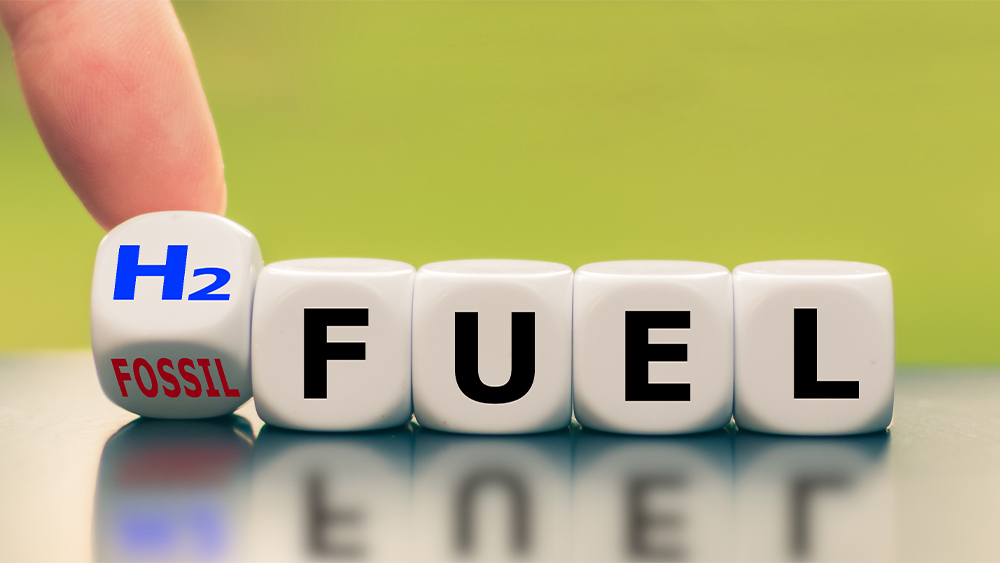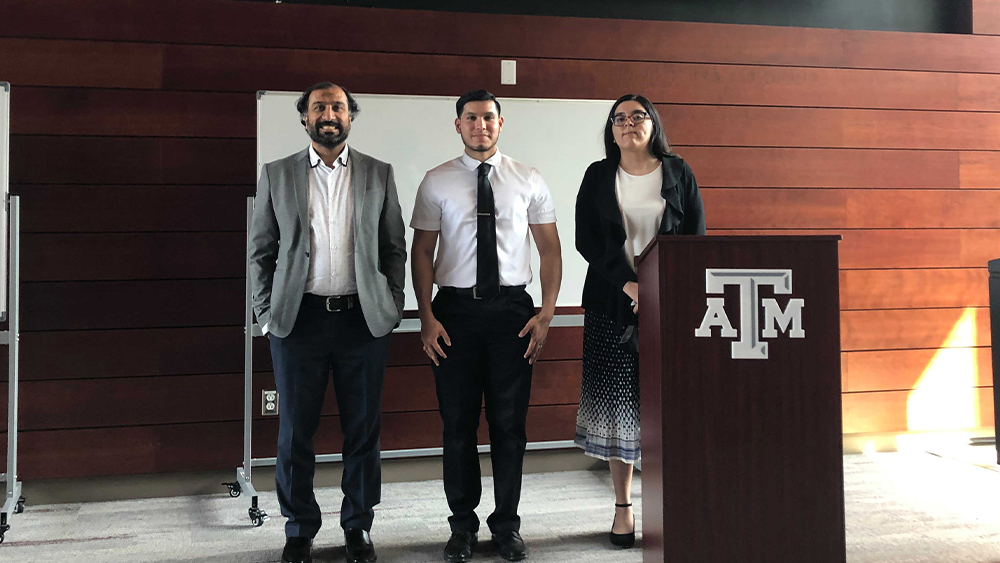
As you drive down the highway, you may notice an increasing number of hybrid and electric vehicles. Alternative energy automobiles are on the rise contributing to the global effort to reduce carbon emissions. As we move together down this road, researchers are determining new solutions to this ongoing problem.
Dr. Muzammil Arshad, instructional assistant professor for the Department of Multidisciplinary Engineering at Texas A&M University, and a team of multidisciplinary student researchers conducted a study to analyze the performance of hydrogen-enriched fuel on spark engine performance and efficiency. This solution could make significant contributions to helping automobiles become more environmentally friendly.
"Due to climate change as well as a focus on reduced emissions and deprivation of fossil fuel reserves, there has been immense research to reduce emissions," said Arshad. "This has led to investigating effects of dual fuels on the emissions as well as engine performance parameters because we don't want to lose the combustion characteristics by injecting a secondary fuel."
Two multidisciplinary students, Jonathan Rodriguez and Miriam Alanis, contributed significantly and are co-authors of the research. As undergraduate students at the Higher Education Center at McAllen (HECM), this accomplishment is an impactful stepping stone.
Their research was accepted into the 12th U.S. Annual Combustion Meeting hosted in College Station, where they presented their findings.
"I think presenting at the conference was wonderful," said Alanis. "From the study, we were able to produce tangible results that could potentially be meaningful and useful."
This study was also recently published in the Petroleum and Chemical Industry International journal.

"These accolades establish our research and give it credibility," said Rodriguez. "We are making progress at the HECM. I believe we are part of the first student research project conducted on campus. As an undergraduate, I didn't believe it was an experience I would achieve until Dr. Arshad developed the project."
Spark ignition engines are commonly used in various small SUVs and sedans. In these engines, gasoline merges with air and is ignited by a spark formed by the spark plug, creating combustion. The car can convert thermal energy into kinetic by burning the fuel, allowing the car to move.
"We have performed numerical simulations to understand and predict the performance of spark ignition engines by introducing hydrogen in various quantities and predicting the effect on various efficiencies, in-cylinder pressure and emissions," said Arshad.
The goal is that by adding hydrogen, the car will be more fuel-efficient and produce less harmful emissions. The researchers also analyzed whether significant changes would be required to current spark ignition engines to account for the addition of hydrogen.
"Originally, we thought the difference in the in-cylinder pressure due to the enrichment could create issues that would require major modifications to the engine," said Rodriguez. "Our findings show a reduction in the in-cylinder peak pressure, consequently insinuating that we do not need major modifications to the engine to use this dual fuel. This research has potential value in the fuel market while leaving the vehicle market untouched."
As the first research initiative at the HECM, Arshad is thrilled with the results and plans to conduct similar projects with students in the future.
"Research experience and publications are a major skill they can now showcase on their resumes," said Arshad. "They also learned skills such as time management, working under pressure, meeting deadlines and presenting in front of large audiences. All of these skills are valuable and will help them in the future."